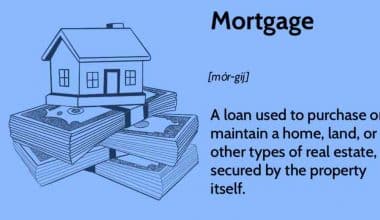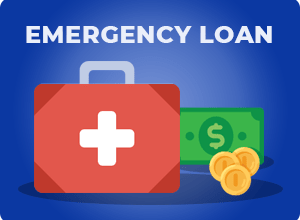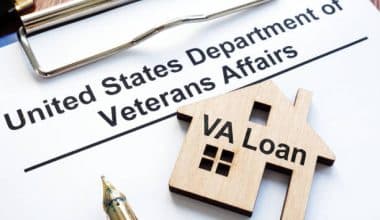The FHA, or Federal Housing Administration, insures mortgages made by FHA-approved lenders. In the United States and its territories, the FHA guarantees these loans on single-family and multi-family homes. It is the world’s largest insurer of residential mortgages, having insured tens of millions of properties since its inception in 1934. FHA loans allow for down payments as low as 3.5% with a FICO of 580 or 10% with a FICO of 500. FHA loans are insured by the federal government, but they are made by private lenders. Mortgage insurance is required on all FHA loans, even if you put down 20%, but the amount and length of coverage vary. The house must pass an FHA appraisal and meet federal health and safety criteria.
FHA Loans
A Federal Housing Administration (FHA) loan is a mortgage that is insured by the FHA. These loans are originated by private lenders but are guaranteed by the FHA and follow the agency’s criteria and policies. This insurance allows banks to make loans with fewer restrictions than traditional loans, such as a 3.5% down payment or a credit score of 500. Even if you don’t meet the qualifications for a conventional mortgage or have filed for bankruptcy, you may be able to qualify for an FHA loan. Although the federal government does not make FHA loans, it does insure them. Because this insurance protects lenders in the event of a default, FHA lenders are ready to give favorable conditions to applicants who may not qualify for a traditional house loan. Private, FHA-approved lenders, such as numerous banks, credit unions, and nonbanks (a sort of online lender), make FHA loans available.
An FHA house loan can be used to purchase or refinance a variety of homes, including:
Single-family dwellings.
Multifamily dwellings with two to four units
Condominium apartments.
Certain manufactured homes (those that are permanently affixed to a foundation)
FHA loans are mortgages that are insured by the Federal Housing Administration. Because these mortgage loans are federally insured (and so pose less of a risk to lenders), they may be easier to qualify for if you’re rebuilding your credit or need to make a lower down payment. You can acquire an FHA loan with a fixed or variable interest rate, and you can also pick between payback durations of up to 30 years. Aside from financing the purchase of the home, there are specialist loans, such as the FHA 203(k), that help pay for home repairs. If you decide to refinance the home you bought with an FHA loan,
FHA Loans for Bad Credit
To qualify for the low down payment advantage, FHA loan applicants must have a minimum FICO® score of 580. If your credit score is less than 580, the down payment is 10%. You can understand why it is critical to have a solid credit history. Remember that FHA credit standards take into account more than simply your FICO® score; they also consider a borrower’s payment history, bankruptcies, foreclosures, and extenuating circumstances that prevent applicants from making timely payments.
While underwriting your loan, your FHA lender will look at your credit history. You will most likely be eligible for an FHA loan if you have a track record of making on-time payments. The following items can have a negative impact on your loan eligibility:
No Credit History
If you don’t have a credit history or don’t utilize traditional credit, your lender will need to obtain a non-traditional consolidated credit report or construct a credit history through other ways.
Bankruptcy
A borrower’s bankruptcy does not preclude them from obtaining an FHA-insured mortgage. At least two years must have passed for Chapter 7 bankruptcy to be filed, and the borrower must have either reestablished solid credit or elected not to incur new financial commitments.
Payment Delays
It is best to submit your FHA loan application as soon as possible.
Foreclosure
Past foreclosures are not always an impediment to obtaining a new FHA home loan, but it all depends on the circumstances.
Collections, Judgments, and Federal Debt
In general, FHA loan guidelines require the lender to ensure that any outstanding judgments are addressed or paid off prior to or at the time of closing.
FHA Loan Requirements
For borrowers seeking an FHA loan, the FHA establishes minimum requirements. However, each FHA-approved lender is free to set its own underwriting rules as long as they are consistent with the FHA’s minimums. For example, one lender may want a minimum credit score of 600, while another may require a minimum of 620. Lenders determine their own interest rates and costs. Compare offers from multiple FHA-approved lenders to ensure you obtain the best FHA mortgage rate and loan terms. An FHA loan does not need you to be a first-time home buyer. FHA loans, on the other hand, are popular among first-time homebuyers because they combine modest down payment criteria with more forgiving credit scores and existing debt requirements. Some conventional mortgages offer down payments of as little as 3%, but you’ll almost certainly need to fulfill tighter credit score and debt-to-income ratio requirements than the FHA’s minimums.
The mortgage insurance required on an FHA loan operates differently than it does on other types of mortgages. You’ll pay a 1.75% upfront mortgage insurance payment and an annual mortgage insurance charge ranging from 0.15% to 0.75%. The monthly premium is normally paid for the duration of the loan. However, if you put down 10% or more, the mortgage insurance obligation is waived. Other fundamental FHA loan conditions include:
Credit score: 580 or higher with a 3.5% down payment or greater; 500 or higher with a 10% down payment or greater. There are no income restrictions.
Maximum loan size: $472,030 to $1,089,300 for a single-family home, depending on location (with some restrictions).
Maximum DTI: up to 43% in most cases, but greater in other cases. However, the FHA’s minimum standards are merely the starting point for lenders.
The Best FHA Loans for Bad Credit
Even if you have a low credit score, the FHA lending program can help you buy or refinance a home. The Federal Housing Administration backs FHA home loans, allowing lenders like Freedom Mortgage to make loans to borrowers with weaker credit ratings. FHA loans may be more inexpensive than conventional loans if you have a lower credit score and a smaller down payment. To qualify for a traditional loan, lenders frequently require a credit score of at least 620 and a 5% down payment. Remember that you must still meet credit, income, and financial standards to get approved for an FHA loan.
#1. Watermark Home Loan
Watermark offers purchase, refinancing, conventional, and jumbo loans, as well as FHA, USDA, and VA loans. Non-qualified mortgage loans, also known as non-QM loans, are available from the lender for borrowers who are self-employed and may not have high revenues on their tax returns. Borrowers can use Watermark to apply for loans online, upload papers, track the loan process digitally, and sign documents electronically. The website’s “Apply Now” option prompts a few inquiries about borrower intent before providing a toll-free number for a loan officer. You can also choose “Continue” to access the entire online application.
#2. Carrington Mortgage Loan
Carrington Mortgage Services provides traditional purchase and refinance loans, as well as government-backed VA, FHA, and USDA loans. Borrowers who are first-time buyers or self-employed, as well as individuals with a little credit history or who apply using bank statements, can qualify for loans for purchase or refinance through Carrington’s Flexible Advantage programs. There are also cash-out and jumbo choices in the programs. Carrington Mortgage does not provide home equity lines of credit, but it does provide home equity loans to existing Carrington consumers. Carrington’s online application streamlines the procedure. You can upload documents and sign them electronically, as well as check the progress of your loan.
#3. Wells Fargo Mortgage
Wells Fargo offers initiatives focused on furthering racial equity in homeownership, notably for Black and Hispanic borrowers, in addition to conventional mortgages and government-backed FHA, VA, and USDA loans. It is also well-known for its jumbo loans, which are backed by a specialized private mortgage banking team. The bank provides cutting-edge mortgage technologies, ranging from online pre-approval to a fully digital loan application. Electronic employment verification and document upload and download are two features that save time and paper. Sign in to your Wells Fargo account to check the status of your application, share information, and e-sign papers.
FHA Loan Credit Score
The FHA Loan is the most popular type of mortgage among first-time homeowners for a variety of reasons. FHA guidelines require a minimum credit score of 500 for applicants making at least a 10% down payment and 580 for borrowers paying between 3.5% and 10% down payments. However, higher credit scores are frequently required by lenders in order to qualify for FHA loans. If your credit score might need some improvement, think about ways to improve it. If your credit score is 580 or better, you may be able to qualify for a 3.5% down payment. Again, these are FHA guidelines; individual lenders can (and frequently do) set a higher minimum credit score.
How Do I Apply for an FHA Loan?
The good news is that an FHA loan is easier to qualify for than many other mortgage programs. Here’s what to expect.
FICO score: FHA home loans require a minimum FICO score of 500 to 580. (Most lenders want a minimum of 580.) A traditional mortgage, on the other hand, demands at least a 620 FICO score.
Credit history: You’re usually only allowed one 30-day late payment in the last 12 months. Furthermore, you should not have had a foreclosure or a recent bankruptcy within the last three years.
Down payment: If your credit score is 580 or higher, an FHA loan requires a 3.5% down payment. If your credit score is between 500 and 579, a 10% down payment is required.
You apply for an FHA loan through the bank or other lender of your choice. FHA loans are available through the majority of banks and mortgage lenders. You can apply for an FHA loan pre-approval with the lender of your choice. Within a day or so, the lender will collect enough financial information to provide (or deny) a pre-approval. This will give you an estimate of how much money you can borrow without committing to anything. All of the preceding applies to any mortgage application. If you desire an FHA loan, you should say so right away.
What Are the Downsides of FHA Loans?
Disadvantages of FHA loans
- You must pay a mortgage insurance premium (MIP).
- There are borrowing limits.
- Minimum property criteria exist.
- Some lenders may be less willing to accept offers from FHA purchasers.
- You may end up spending more in the long run.
Who Qualifies for an FHA Loan?
According to HUD, borrowers with FICO scores of at least 580 will be technically qualified for maximum financing but will be required to come up with a plan.
Is it Easy to Get an FHA Loan?
Under most circumstances, an FHA loan is easier to obtain than a conventional loan. The broad rules of the FHA loan program give applicants with less-than-perfect credit and minimal money a chance at homeownership, allowing them to develop wealth and a foundation of stability for their families.
What Will Disqualify You for an FHA Loan?
A high debt-to-income ratio, bad credit, or a lack of finances to afford the needed down payment, monthly mortgage payments, or closing costs are the three basic issues that can prohibit you from receiving an FHA loan.
Final Thought
FHA loans are not issued directly by the FHA. Instead, the FHA is in the business of guaranteeing loans, which reduces the risk for lenders while increasing the borrowing capacity for qualified applicants. This power includes the ability to increase interest.
Related Posts
- RATE AND TERM OPTION: Explained
- CREDIT SCORE FOR MORTGAGE: Detailed Guide
- HOW TO BUY A HOUSE WITH BAD CREDIT: Detailed Guide In 2023
- CARD STACKING: What It Is & How to Use It (Detailed Guide)






